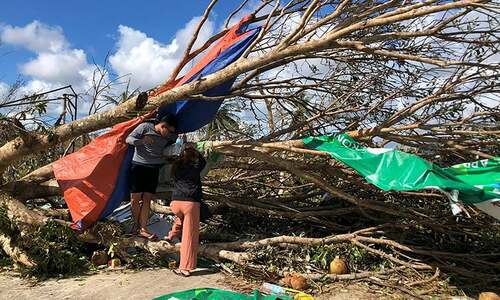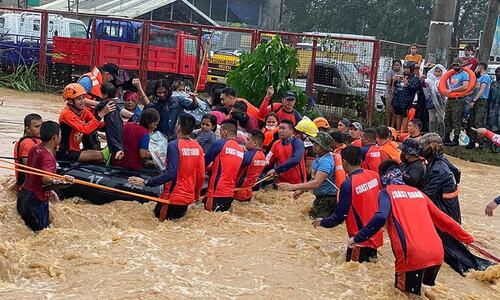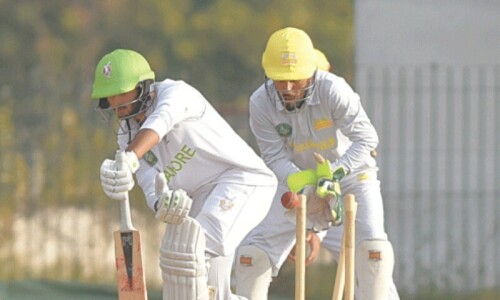Resort and bar owners on a Philippine island popular with surfers and tourists were expecting a bumper Christmas holiday after Covid-19 restrictions finally eased. Then Super Typhoon Rai wiped them out.
The strongest storm to hit the archipelago this year cut a swathe through Siargao, a tropical paradise known for its sandy beaches, big waves and relaxed vibe.
Packing wind speeds of 195 kilometres per hour as it made landfall on the island last Thursday, Rai uprooted palm trees, shredded thatched roofs, smashed wooden buildings, and toppled power poles.
The widespread destruction left the island — voted the best in Asia by Conde Nast Traveler readers this year — unrecognisable.

“The day after the storm, we went outside and we were like 'wow, this is Siargao now, it's no more',” Claudine Mendoza, 27, a sous chef at a beachfront resort, told AFP.
“Even Cloud Nine is no more, it was really devastated,” Mendoza said, referring to the island's surf break where a wooden boardwalk — a favoured selfie spot for tourists — was swept away by the typhoon.

The storm is a bitter blow for tourism operators, hitting them a week before the Christmas holidays when many Filipino families typically head to the country's famed beaches and dive spots.
Pandemic travel restrictions decimated visitor numbers to the island in the past two years, leaving many resorts, cafes, souvenir shops and tour guides struggling to survive.
But domestic tourism began to pick up in recent months as the government relaxed rules to boost economic activity — though it kept a ban on foreign travellers entering the country.
“Everyone was so happy, the island was lively again,” Mendoza said. “Then suddenly the storm came.”
Now, business owners face expensive repairs or having to start from scratch, and their employees an uncertain future.
Some are wondering if it is even worth trying to begin again.
“This typhoon is much worse for us than the pandemic — the pandemic didn't cause any (structural) damage,” said resort owner Anton Alvarez.
“We think we have the capacity to rebuild but there's no point in rebuilding if it's just us — we need the whole of Siargao to rebuild.”
'What will happen now?'
With electricity across the island knocked out, there is no signal or internet, which has hampered efforts of disaster agencies to assess the full extent of the death and destruction caused by the storm.
A least 375 people were killed on the islands hit by Rai, national police have reported — including 167 in the region that includes Siargao.
Farmers and fisherfolk have also seen their livelihoods destroyed, and thousands of families left homeless.

Elka Requinta, a marketing coordinator on Siargao, said the strength of the typhoon caught everyone by surprise.
“We didn't expect it to be this bad,” said Requinta, 36.
“You have locals who were hit because I don't think there was a call for any evacuation from the government.”
It could take months for power to be fully restored to the island, making it difficult for business owners to talk to their partners and investors about the future.
Alvarez said he would like to reopen his resort within 12 months, but admitted that was “pretty optimistic”.
“What will happen now?” asked Mendoza. “We don't know.”















































